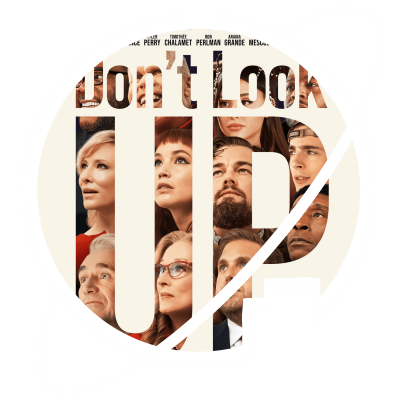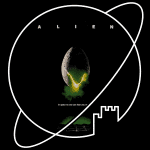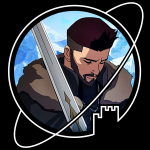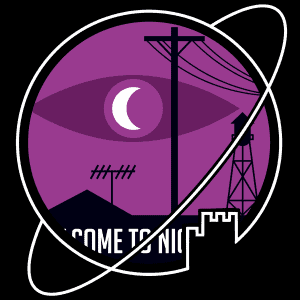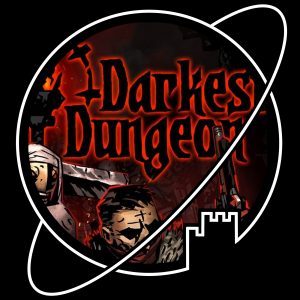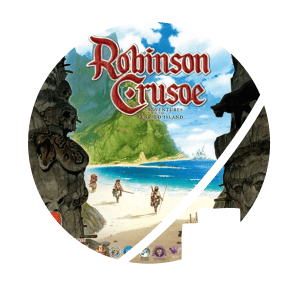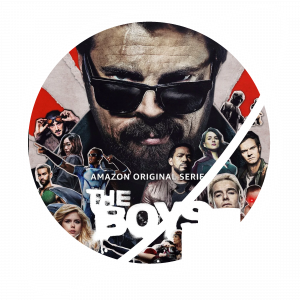Welcome to the Escape Velocity Collection!
We are an opinionated group of friends reviewing all sorts of fantasy and science fiction media. Don’t forget to get to know the curators and visit our curated Collection, where we discuss the stories that never cease to transport us to another world.
Will you escape with us?
LATEST POSTS:
- Book written by Joe Abercrombie
- Published June 2009
- Stand alone in the First Law universe
Against a backdrop of Machiavellian politics and bloody war between the city states of Styria, former mercenary general Monzcarro Murcatto is betrayed and nearly murdered by an employer she thought she could trust. Battered and beaten, she scrapes together a crew of bloody-minded misfits – amongst which a barbarian Northman looking to better his life, a murder with a mind for numbers and a poisoner with an excess of pride – with a single mission: Revenge!
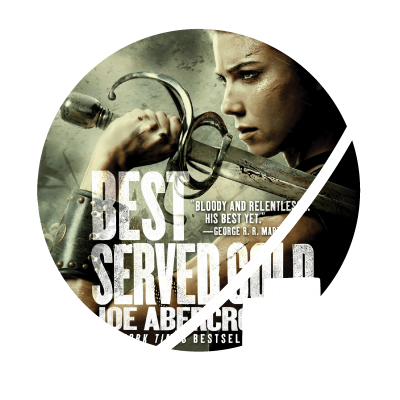

Listened to the audiobook with Steven Pacey – I’m starting to think his excellent performance of the First Law-trilogy is half the reason I picked up this book, and his reading of Best Served Cold was every bit as good as his work on previous Joe Abercrombie-books.
This book is set in the same universe as the First Law-trilogy, but I am sure you could read Best Served Cold without having the prior knowledge. There are a handful of nice references and recurring characters familiar to readers of First Law, but none that are required for understanding what is going on.
Best Served Cold is both very similar and very different to previous books set in what I understand is also called the First Law-universe. It is very similar in that Abercrombie brings his signature style of well written prose, a nice balance of dark humour versus serious story, antihero protagonists, and blood-splashing-the-camera violence and gore.
It is very different in scope. One of my disappointments when I read The Blade Itself, the first part of Abercrombie’s First Law-trilogy, was that it felt like a large heap of (albeit well written) world-building and set up without much story progression. Even though I liked the trilogy in the end, I felt there was maybe too much going on for three books, and perhaps it would have been better to explore some settings or characters more outside of the scope of the trilogy (which I understand Abercrombie has done, and I will get to those books and stories in due time). Best Served Cold addresses all of these issues by zooming in on a smaller set of characters with an emotionally driven goal in a smaller geographical space, with just the occasional reference to the grand politics and great mages of the outside world. This sub-genre shift from epic fantasy to swords-and-sorcery fits Abercrombie’s style very well.
As befits a standalone novel, there is very little world building and rules setting weighing down the plot – instead, the main character gets to start her revenge mission a couple of chapters in, and the story doesn’t let up from there. I do not want to say that the setting is not well though-out, but rather that – unlike is the case in some fantasy novels – the setting exists as a stage for the drama rather than as a main character itself. I personally rather like the Machiavellian, warring-Italian-city-states backdrop. I feel it fits the book’s nihilistic message – and I don’t think it needed any more explanation than it got to work well.
Above all though, I found the book profoundly easy to read. That is in part due to Abercrombie’s easy and humorous prose, but also due to the somewhat episodic structure to this novel that means you will never loose track of where story is going next, and that delivers a satisfying climax every time.
I realise that Grimdark does not appeal to everyone, and some people will probably find this book somewhat disgusting and highly depressing. Others will love it to bits. Overall, I I think Best Served Cold is an excellent fantasy novel, and I would recommend people seeking to give Joe Abercrombie a shot to start here – it requires a lot less getting into and is even a tad less dark than the First Law-trilogy (I think? It’s still pretty dark), but it showcases all of Abercrombie’s qualities very well.
See also:
- Movie directed by Adam McKay
- Produced by Netflix
- Starring Leonardo DiCaprio, Jennifer Lawrence, Rob Morgan, Jonah Hill, Timothée Chalamet, Ariana Grande, Cate Blanchett, Meryl Streep and others
- Released in 2021
- Runtime: 138 minutes
Two astronomers discover an extinction-event worthy comet is headed for Earth. Humanity has six months to think of something to save the planet. However, who will listen to the scientific community warning for total destruction? Certainly not politicians or the media…
 Let’s get the elephant out of the room: this movie is about climate change. And maybe a bit about the corona pandemic. It is about inevitable destruction not being enough to get people to take action and save the world.
Let’s get the elephant out of the room: this movie is about climate change. And maybe a bit about the corona pandemic. It is about inevitable destruction not being enough to get people to take action and save the world.
Now that is out of the way, let’s talk about the movie. I found it entertaining. I think it was a bit too long, especially the first half, but not boring. In comparison with McKay’s other social commentaries The Big Short and Vice, the story was more on the forefront and there was no fourth-wall breaking explanations – which I don’t really like – except in the beginning, when text on the screen explains a particular institution is real. Yet I found the message of the movie coming down a bit more flat than McKay’s previous movies. It was very on the nose and made me shrug like, yep, that is the way it is, no surprises there.
Some critics might say this was because the real world is more bizar than the satire of Don’t look up. I disagree. I think the frustrating and infuriating system of unresponsive governments can still be shown by zooming in and focusing on a specific aspect of reality – satire enlarges this aspect and shows the absurdity.
Did the movie succeed in this? Yes and no. I think the talk show/media-part was quite good, but the political angle did not do it for me. The president (Meryl Streep) and secretary of state/son of the president (Jonah Hill) did a fine job acting-wise, but the movie would have been stronger when the politicians had been colder and more calculating, instead of incompetent and happy. We do have some experience with powerful yet jolly and incompetent leaders of course – ahum – but I think pointing to this as the cause of inaction does not hold (completely) in global perspective. Which is another thing I would have loved to see: a less US-centric approach. Although this Americentrism might also be a point the movie is trying to make.
I wonder if the movie would have been better when it had focused on either politicians or the media. A movie about global organisations and politicians caught in a web of bureaucracy and diplomatic relations, where not one powerful individual is to blame, but a political system that we can’t seem to escape. Or a movie about the media cycle that can’t really express urgency when issues take more than a week to solve and that try to make every information into infotainment.
The movie was good and important. I have seen reactions of people who say the movie opened their eyes. I am glad. But the question remains: will it spur politicians on to action or will it disappear in the news cycle like any other piece of global warning? (pun intended)

I watched this movie because the premise was kind of interesting and I like a disaster movie. It’s not that I hated it, but I was expecting it to be better with the cast that it had. This movie is… fine. It’s very on the nose, and it wasn’t very funny? There’s a lot to be said about this movie that has already been said, so I will keep this short.
I feel like the idea of satire is to point something out in a funny way. Or at least in a way that makes the situation funny. This movie just wasn’t very funny? There were some jokes, I guess. Maybe I laughed twice?
What it comes down to for me is this: We all know global warming sucks and the people in power aren’t doing enough to stop it. This isn’t news. If you’re going to write a satirical movie about it, at least make me laugh.
“Underwhelming” definitely covers how I felt about Don’t Look Up.
 The first half of the movie I was amused, then I was just sad. I like my fiction a bit more… fictional.
The first half of the movie I was amused, then I was just sad. I like my fiction a bit more… fictional.
I jumped blindly on the hype-train and I think I regret it. I do want to give a shoutout to the casting director. If you’re a fan of one of the big names in the cast, it might be worth it to see them do something completely different from their usual works. Otherwise I would not recommend this movie.
Tagged:
- Book written by Naomi Novik
- Published in 2020
- Part 1 of The Scholomance
In the Scholomance, students are trained to defend themselves against the hordes of deadly monsters that are constantly trying to eat them. Although survival rates in the Scholomance are only around 50%, this is still higher than those outside of the school. There are no retakes, holidays or even teachers. Students either graduate… or die.
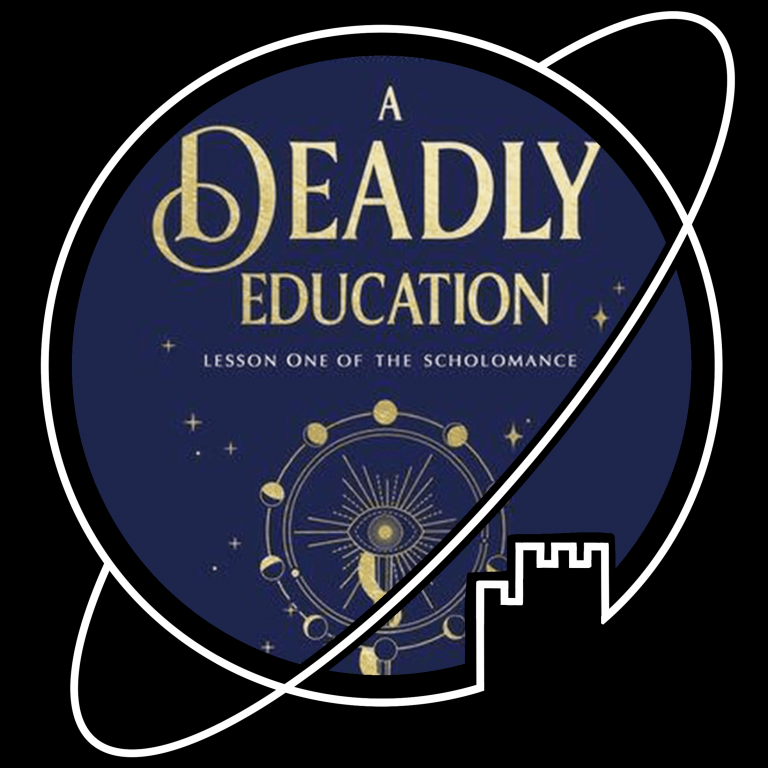

The premise of this book sounded slightly ridiculous to me, but I suspected that in Naomi Novik’s capable hands it could turn into something really fun. That’s exactly what it delivered: the book is fast-paced, easy to get drawn into and does’t take itself too seriously. There are no major surprises to seasoned fantasy readers, but for lovers of the ‘magic-boarding school’ sub-genre this will tick all right the boxes.
One thing I especially enjoyed about it, is that it is not a fight of good against evil: the students need to stay alive in a world where they are in constant danger of being eaten, but there are hardly any villains in the book. There are no frustratingly evil teachers that the students have to stand up against, only a deeply unfair socio-political system and students taking advantage of the privilege that this system gives them.
El’s temper and dry humor combined with her strict moral code make her a very fun character to read about. Especially her ill-tempered attitude towards Orion is a highlight of the book. I think this is a great read for a young-adult audience, but also for older readers who are in the mood for a quick, fun read.
Tagged:
Time to get to know the curators from the Escape Velocity Collection! How? By asking them the questions that really matter! This time with a special New Year edition!
As 2022 is almost here, it is once again time to try and be better versions of ourselves! Let’s set goals and resolutions and reduce the piles of media that are still waiting to be consumed! That’s how it works, not?
In the spirit of New Year resolutions, we asked ourselves:
What are your 2022 to read/watch/listen/play resolutions?
1. The Fifth Season - N.K. Jemisin
I picked this book up earlier in november – and was immediately intruiged – but due to starting at a new job, I’ve kind of neglected reading it any further. However, I really want to start reading again! Especially because it was Lotte who lent me this book and she’ll probably want it back at some point…haha.
2. The Witcher, season 2 - Netflix
I’ve been anticipating this new season for a while, but now that it is here I haven’t managed to find time to watch it. That just won’t do. I want to toss a coin to our favorite witcher!
3. The Legend of Zelda: Breath of the Wild Sequel - Nintendo
Though it’s not exactly guaranteed the sequel to Breath of the Wild will indeed arrive in 2022, I’ll trust the current predictions. Imagine how beautiful it will be? So many new opportunities to glide over the map and ambush unwitting enemies! Mwhuahahahaha!
1. Kirby And the Forgotten Land - Nintendo Switch.
Kirby is a bit of a spirit animal for me. Always hungry, very pink and quite bouncy. I also really enjoy open world 3D platformer games, so this might be one of the games I’m quickly gonna get sucked into next year! (haha, Kirby joke)
2. The Legend of Vox Machina - Amazon Prime
Okay so I definitely haven’t seen all the Critical Role streams, but I enjoy their storytelling abilities and personalities. Which is why I am actually very excited that they created an animated series! Witty characters and daring adventures in bite-sized bingewatchable episodes. What else could I ask for?
3. The Umbrella Academy - Netflix
Season 3 of the Umbrella Acadamy is coming in 2022. I remember I had a lot of Emotions at the end of season 2, but I might need a recap to discover why exactly. I do know I was blown away by the strong and diverse cast, so I have no doubt season 3 will give me All the Feels, again.
1. Exhalation - Ted Chiang
This book of science fiction short stories has been steadily moving closer to the top of my to-read pile since I bought it in October. Not long now!
2. The Sandman - Netflix
I’m very curious to see how this adaptation of Neil Gaiman’s famous comic book series will turn out. Although to be honest, a new book by him would probably have been higher on my wishlist than yet another adaption. But beggars can’t be choosers!
3. His Dark Materials, season 3 - Bad Wolf
It looks as if the third season will air in autumn 2022, so I will need to be patient for a little longer. So far this adaptation of Philip Pullman’s His Dark Materials trilogy has been so much better than I dared to hope, and I am very excited for the third and final season.
1. Blade Runner - Ridley Scott
I really want to finally read Do Androids Dream of Electric Sheep by Philip K. Dick, so I can finally watch Blade Runner and Blade Runner 2049. ‘Wait!’, I hear you cry, ‘You haven’t seen Blade Runner?’ To which I say, exactly nothing, I know I should be ashamed and I am. I’ve copied the Electric Dreams e-book to my e-reader, so I’ve already taken the first step!
2. The Quest of the Ringbearer - Games Workshop
Games Workshop released a supplement for the Middle-Earth Strategy Battle Game some time ago with a string of narrative scenarios that follows Frodo’s quest all the way from stealing farmer Maggot’s crops in the Shire to tossing the ring into the fires of Mount Doom. I’ve been expanding my collection little by little lately to be able to play everything (and of course I am still dozens of models – including two Mumakil – short…) – I really hope I can start the campaign in 2022. If I do, I promise pictures!
3. The Winds of Winter - George R.R. Martin
We’ve been waiting for over a decade – I’m sure it’ll happen this year, right, George? …right? Right?
1. The Witcher 3: Wild Hunt - CD Projekt Red
I bought this game a year or so ago on Switch. I’d had it on my Steam wish list for years, but my gaming PC stopped working so I ended up buying it on Switch, but I still haven’t played it. I’ve read the first book in the series – which I really enjoyed – and I love the Netflix show. All in all, there is no good reason I haven’t played this game yet and I should feel bad.
2. The Legend of Vox Machina - Amazon Prime
I, like many, have been looking forward to this series ever since it was announced. Not sure how I’ll watch it – I really don’t want to give my money to Amazon so I might get a free trial once all the episodes are online. Or maybe I’ll be able to persuade someone to lend me their account. We’ll see!
3. Pacific Rim: Uprising - Steven S. DeKnight
Anyone who’s ever discussed movies with me knows how much I loved Pacific Rim. I’ve always been sad I never saw the original movie in the cinema, and vowed to watch the sequel on the big screen. I can’t fully recall why, but I ended up never watching it at all. It’s now on Netflix, and while I’m sure it’s nowhere near as good as the first movie, I definitely intend to watch it sometime soon.
1. Earth Eclipsed - The Lunar Company
A neuroscientist on the brink of a huge discovery that will save millions of lives is kidnapped. I expect some relatively fast-moving entertainment from this audio drama. A plot-driven story with some light sci-fi reflection on our world. But who knows, it might possess a deeper layer…
2. Limited Capacity - CBC Podcasts
A collection of six short stories about the ways we interact with the internet and each other. I expect a kind of Black Mirror-esque stories from this audio drama and I simply love me my dystopian technology.
3. Apollyon - Observer Pictures
An audio drama about the end of the 22th century, when a virus has wiped out 75% of the world’s population and now most of the world is governed by an international group of scientists, trying to get a vaccine to the public. You might think I can imagine quite well how this story would go when this happened in the real world *cough cough*, but still I am curious to see if this story can bring new insights.
Happy New Year, folks!
Check out the reviews of related media here:
- Book written by Guy Gavriel Kay
- Published May 1995
- Stand alone
In a low fantasy world mirroring religiously divided medieval Spain, three characters from different faiths and different kingdoms – a Kindath doctor, a Jaddite mercenary and an Asharite court poet and general find each other and forge bonds of love that are subsequently tested as the peninsula threatens to descend into the chaos. As the threat of holy war looms and their different allegiances start to slowly pull them apart, they are confronted with difficult choices about who they are and what they stand for.
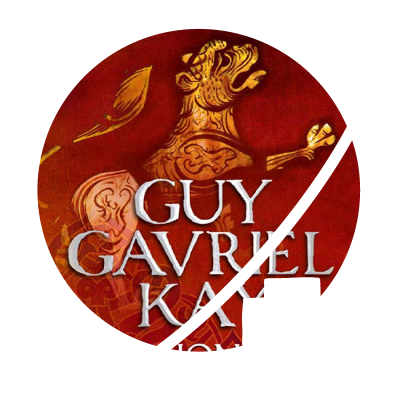

I have said before that I dislike the idea that every fantasy story needs to be told in a trilogy. The Lions of Al-Rassan is a perfect showcase of how to tell a complex story that has it all – characters, politics, war, scheming, growth, you name it – in a single volume.
The trick, it appears, is to set your story in a low-fantasy world that presents an instantly recognisable image of a historical reality from our own world, and build from there. No steep learning curve, no info dumps – just emotional storytelling right from the prologue.
For a seasoned reader of fantasy, this book is almost like historical fiction – feeling closer to Ken Follet than to the likes of Tolkien. The parallels to the real world reconquista of Spain are very strong – from the inspiration for names to treatment of religion and even the world map, nothing in this book seeks to hide its source of inspiration. At the same time, the larger-than-life characters (and some supernatural elements) pull it just into the realm of fantasy. If you have a family member who likes historical fiction but never tried their hand at something speculative, this is a perfect book to bridge that gap.
What is more, this is the first book by Guy Gavriel Kay I read, and he definitely lives up to his reputation as a writer of beautiful poetic prose. There is something very satisfying in reading about a world that is not so different from ours, but where everything is decribed as just a little closer to its ideal form – the moon is always bright, the warrior-poets always gallant, the women always beautiful, the desert savages always stoically cruel. There is so much athmosphere to this book. There is a certain melancholy dripping from the pages that makes you feel for all the places swept up in the reconquista more than a hundred pages of worldbuilding might have.
The worldbuilding is one element of this book that is perhaps a little thin – but Kay doesn’t pretend at much either. Nor does the book present very original ideas or particularly surprising twists – but it does not attempt to. The only point where I feel this books really falls a bit short at times is in its pacing in the middle section – there are a couple of places where it gets bogged down in very athmospheric scenes or settings that do little to move the story forward (a surprise, in a way, given how much story Kay manages to fold into this single book). The religious themes in this book – mirroring the historical relationships of the three great monotheistic traditions – are a bit heavy-handed at times, and that leads to a final point of criticisim that I didn’t want to leave unmentioned, though I realise it’s a pet peeve of mine that others won’t be bothered by. Although I feel Kay created a plausible pseudo-histrical setting, inexplicably none of his main characters share the bigotry and medieval mindset of the others inhabiting the world. That means his commentary on the futility of religious wars is far less poignant than it could have been.
Overall, though, I am very impressed by The Lions of Al-Rassan because it is so different in style from the fantasy books that I typically like, but it struck a note with me that makes me want to go pick up another of Kay’s novels. I reckon there are more emotionally focussed readers out there who are going to absolutely love this to bits, and especially because it has only one volume, I would happily recommend The Lions of Al-Rassan to all but the most plot or action focussed of readers.
See also:
December 26, 2021

Collected on: December 26, 2021
- Video Game developed by Bioware
- Released in 2009
- Platforms: Microsoft Windows Xbox 360 PlayStation 3 Mac OS X
- Part one in the Dragon Age series
Forced by circumstances to leave your old life behind, you join the ranks of the Grey Wardens, an ancient order sworn to protect the world against the murderous Darkspawn. Though the fate of the whole continent lies in the balance, you’re the people’s only hope to stop their imminent advance. However, you’ll have to navigate the politics of several factions and explore dangerous locations to stand a chance. Shall you succeed?
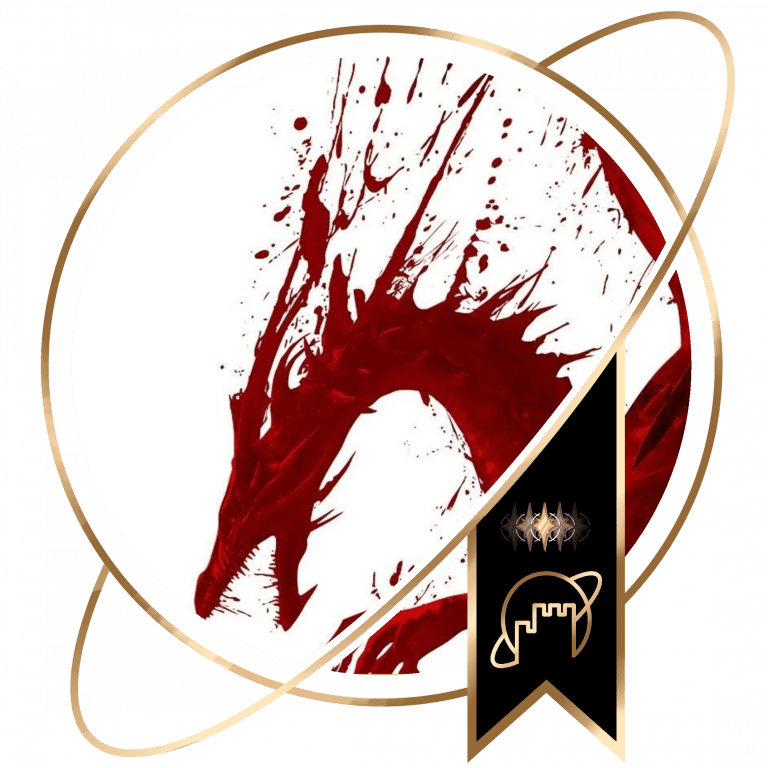
Jop: Welcome to this in-depth, spoiler-free discussion of the video game Dragon Age: Origins (yes, the first one), which our curator Jop has added to the Escape Velocity Collection, a series of items that we believe represent the absolute peak of what the speculative genre has to offer.
I challenged Jop to defend this addition to the Collection – why should everyone start their Dragon Age journey at the first installment?
Defended By

JOP
Versus

PETER
As usual, I would like to start the conversation by asking when you first played Dragon Age: Origins, and what makes you remember it so fondly more than ten years after its release?


I was under 16 years old when a friend first showed me bits and pieces of Dragon Age: Origins. I played through some levels without any knowledge of the overarching plot and the specifics of the world. However, I remember I was deeply impressed by the extensive lore and the elements of choice. This was my first experience with roleplaying that offered me choices that the world actually reacted to, and I thought it magical! Here there was this gigantic, mystical fantasy world with its own detailed history, and I could impact how the future would look like? Not only that, I was able to travel with companions that really were well-rounded characters that had their own opinions on things? It evoked a weird mixture of wonder, adventure and godlike hubris in me, that I haven’t often felt since those early days of playing.
Even nowadays, the scope of the worldbuilding is something that gets to me. However, I think it is the unique way in which Bioware handles companions that I’m still deeply in love with. It’s not something I see well executed often.
Worldbuilding
You just said that the worldbuilding was one of your favourite elements of Dragon Age. Dragon Age is set in a relatively generic medieval European fantasy setting – we have men, elves, dwarves, not-orcs called darkspawn, and, unsurprisingly, dragons; A kingdom with politicking barons, rivalry between mages and the church. At first glance, nothing new under the sun. If we dig a little deeper, what are the elements of worldbuilding that really drew you in?


Though you paint a fairly correct picture of what Thedas (the Dragon Age setting) looks like, Dragon Age actually manages to subvert many of the archetypes and tropes you would expect. Elves are not the superior species, the fair folk, but rather the outcasts of society and constant victims of discrimination. The dwarves are not a traditionally loyal and proud warrior culture, but instead a society of mostly merciless and backstabbing brutes. BioWare lures you with a false sense of familiarity with their tropes, but then surprises you with their execution.
Aditionally, what really stands out to me in Dragon Age’s worldbuilding, are the many secrets it harbors. Way too often in speculative fiction, you get told how a world works, and than that’s it. No twists and turns, just a clear and static world. But not so in Thedas. Sure, you’ll get tonnes of information and worldbuilding tidbits thrown at you, by both characters and in-world codexes. However, just like in the real world, it seems the truth of these sources is often very subjective. Things are not what they at first appear, and even things that seem clear-cut might suddenly be highlighted from a completely different perspective. To discover the ultimate truth, you’ll always have to delve a whole lot deeper.
Characters
I know you love character driven stories, and, as you said, that too was one of the aspects that drew you into Dragon Age. Could you elaborate on how the characters in Dragon Age are different from the stereotypes that we often see in video game writing?


The funny thing with many of Origins’ characters is that they very much seem like stereotypes, but they always come with a significant twist. Take the nobleman’s bastard, trained as a templar, for example. He’ll probably be a natural born leader, right? Well, not in Dragon Age. Your “mentor characters” are callous or short-sighted, while the characters that appear ruthless can suddenly harbor a misleadingly soft-hearted side. No one is predictable.
Furthermore, something that really stands out te me is how the characters develop as the story moves on, partially depending on your choices. Especially in the case of the companions. At the end of the road, it is as much their story as it is your character’s. I really love that.
You mention character development, which is a trait we associate with literature (or perhaps film) more often than with video games – could you perhaps elaborate on how the characters develop, how you experienced it and how that is different in a game compared to a book?


Certainly. Origins comes with the so-called approval system for your companions, in which the game tracks to what extent your companions like (or dislike) you. Dependent on their relationship with you, your companions open up about their (tragic) backstories and you get the opportunity to discuss your opinions. In addition, when a character likes you, they are more likely to give you the benefit of the doubt when you perform a deed they find questionable. This allows you to somewhat shape your companion’s views. Especially Alistair and Leliana can undergo some significant character development in this way.
I really liked how my character wasn’t the only one with opinions and goals. It feels less like you’re playing a video game on your own. I also think this is where it really differs from character development in books. When you’ve personally travelled with someone for hours, chatting with them when you feel like it (or even romanced them), their eventual character development hits closer to home. It feels like you were part of that development. It’s less static than how its done in books.
Choices
You mentioned the choices as a key part of your enjoyment of the game, so let’s take some space to discuss those. Right when you load into a new game, before the rest of character creation, you are presented with an option for an origin, giving the game its name. The origins range from wood elf to dwarven slum dweller, and each of them comes with a unique, role-play heavy origin story that acts as a sort of prologue to the main game. In the main game as well, you are presented with a fork in the road from time to time.
Could you tell us about some of your favourite choices, without spoiling too much?


Oof, without spoilers, huh? Well, one of my favourite choices might actually be the option to choose your origin at the beginning of the game. Like you said, these are some wildly different beginnings to the game, and they all really impact how you play your character through the rest of the story. You choose to be an city elf or an mage? Prepare to be distrusted by almost everyone you meet. Alternatively, if you begin as a human noble, you’ll find that some of your privileges actually carry over till later in the game.
Some other choices I liked were the ones concerning your companions and the gathering of allies. These are often quite difficult and both choices tend to be morally ‘grey’. At times the stakes of these choices are also very personal, so deciding on a way forwards can be a delightful conundrum.
On a critical note, it sometimes felt to me like the choices you are presented with create a rather superficial divergence of paths – as an obvious example, each of the origin stories eventually leads to the start of the main game, which is a relatively fixed point. You’ll run into similar fixed points or outcomes as you play further. Do you feel the choices in Dragon Age: Origins have a meaningful impact on the player experience?


I certainly think the impact is meaningful, though it depends on what you’re looking for as a player. Your choices shape the future of the world and are reflected in the lore. Characters will respond to your actions and remark on them. Furthermore, when you play the later installments in the series, you are occasionally reminded of the choices your previous characters made. This is something I truly enjoy.
However, when you look at the impact your choices have on a gameplay level, its scope is much smaller. Though you have a lot of freedom to choose which paths you take in which order, there are certain fixed checkpoints you’ll always have to pass.
One gameplay element many people might be curious about is whether you feel the choices create replayability. A (perhaps unfair) example is the second installment in the Witcher-series of video games, in which a couple of choices at the start of the game can mean playing through a completely different storyline. To what extent do you feel Dragon Age lets you play a different story if you make different choices?


The Witcher 2 example is quite tricky, because that’s a kind of mechanic I’ve seldom encountered in any other games. Though it’s very cool, it is not easy to match. Like I admitted, Dragon Age’s story has some fixed points that will be the same for every playthrough, both in the terms of gameplay and lore. Yet, out of all the Dragon Age games, I’ve replayed Origins the most times with very different characters and choices. And still I have yet to see everything this wonderful game has to offer. If that isn’t a testament to its repayability, I don’t know what is.
Gameplay
Speaking of gameplay, I notice that it was one of the points you did not mention at the start of this discussion when I asked you what made you love Dragon Age. Is the gameplay a secondary consideration for you? Playing the game, you’ll likely encounter a whole lot of it…


There’s gameplay in games?
All joking aside, yeah, gameplay is indeed only a secondary consideration for me. I’ll be one of the first to say that Origins mechanics are quite clunky. If you want it to be, the combat can be pleasantly tactical and challenging. However, I’m more the kind of player that will set a casual difficulty when playing games that are driven by story or characters. I know there are people who absolutely adore Origins gameplay, as well as people who thoroughly despise it. I can only say I didn’t mind it either way.
Age
I know Dragon Age has often been called a spiritual successor to Baldur’s Gate, another RPG by BioWare that I love a lot. Looking from a distance, the games might not look alike at all, but upon closer inspection, there are many similarities: both role-playing games where you gather a party of companions and embark on a quest to save the nation; in both of the games, a lot of the roleplay takes place via text-based conversation menus; both games allow for detailed customisation in character progression; both games allow you to pause the game mid-fight, take control of you companions, and order them to take specific actions.
Really, if you think about it, the only real difference is the game’s presentation of the world: where Dragon Age takes more of a fully rendered approach similar to many third-person action-RPGs (which, really, it isn’t), Baldur’s Gate has classic top-down isometric graphics. Perhaps surprisingly, it feels to me as if Baldur’s Gate has aged a lot better, despite being simpler and older.
The question that all this leads into is: would you still recommend Dragon Age: Origins to people in 2021 (or by now I shoudl be saying: 2022)? Do you feel like its presentation and age hold it back?


Am I not right now discussing how Dragon Age: Origins should be added to our Collection? Age doesn’t matter when a story is unique and well-executed. I know you believe this is true for books, and I state it’s also true for video games.
Yes, the graphics will no longer impress anyone (though it seems there are some magnificent fan-made mods out there that solve this somewhat), but why judge a book by its cover? The ‘soul’ of the game is timeless, how it tells its story and provides the gamer with heartfelt choices and characters. Frankly, I wish there were hundreds of similar games I could recommend in Dragon Age’s place, but this isn’t the case. In all these years, there are only a few who managed to match its strong points. In my opinion, Origins was somewhat of a trailblazer and – though it’s far from perfect- I think everyone wit a love for fantasy, roleplaying and the ‘choice matters’-format should still give this game a go.
I might touch upon one other point where the game shows its age. When I sat down with my girlfriend to start a new game of Dragon Age: Origins for this review, she chose to play a female wood elf. The first thing that appeard on the screen was.. an elf girl in bikini armour. Some of the outfits of important female NPCs are little better. That’s jarring in this day and age, and a serious strike against the game for me. Would you agree?


I agree that’s quite jarring. Though Origins was quite progressive for its time when it came to societal values, the game does not meet today’s standards on multiple accounts. For me, it doesn’t take away from its charm, but it is a fair disclaimer to share. Later Dragon Age games score a lot better in this regard.
Conclusion
And I have a feeling we might see some of those other Dragon Age–titles in this space at some point as well! With that said, I think we can conclude that if you are interested in a choice-based, character driven video game experience and aren’t too bothered by gameplay or graphics, Dragon Age: Origins is as good as they come even after a dozen years. Is there anything you would like to add to that conclusion?


Yes, swooping is bad…
That’s been us for now folks, and the message is simple – if you have time to kill this holiday season, why not give Dragon Age: Origins a spin?

- Adventure, Atmospheric, Character-Driven, Discrimination, Dragons, Exceptional Worldbuilding, Exploration, Fantasy, Fellowship, High Fantasy, Journey, Last Stand, LGBTQ+, MacOS, Microsoft Windows, Nobledark, Original Setting, Playstation 3, Politics, Quest, Religious Themes, Revolution, Role Playing Game, Series, Single-player, Story-Driven, Violence & Gore, War, Xbox 360
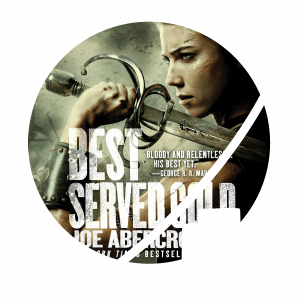
Review: Best Served Cold – Joe Abercrombie
Against a backdrop of Machiavellian politics and bloody war between the city states of Styria, former mercenary general Monzcarro Murcatto is betrayed and nearly murdered by an employer she thought she could trust. Battered and beaten, she scrapes together a crew of bloody-minded misfits with a single mission: Revenge!

Review: Don’t look up – Adam McKay
Two astronomers discover an extinction-event worthy comet is headed for Earth. Humanity has six months to think of something to save the planet. However, who will listen to the scientific community warning for total destruction? Certainly not politicians or the media…
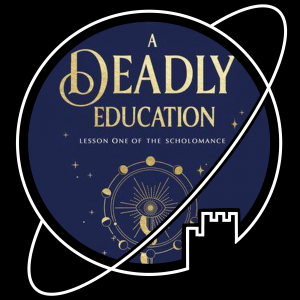
Review: A Deadly Education – Naomi Novik
Part 1 of The Scholomance – In the Scholomance, students are trained to defend themselves against the hordes of deadly monsters that are constantly trying to eat them. They either graduate… or die.
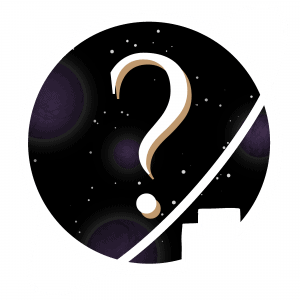
Curator Question: 2022 Resolutions
What are our curators’s resolutions for 2022? Which media on their to be read/watch/listen/play piles will finally get the attention they deserve?
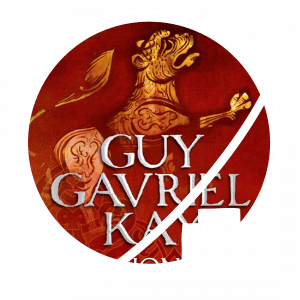
Review: The Lions of Al-Rassan – Guy Gavriel Kay
In a low fantasy world mirroring religiously divided medieval Spain, people from different faiths and different kingdoms find each other and forge bonds of love that are subsequently tested as the peninsula threatens to descend into the chaos of holy war, and their different allegiances start to slowly pull them apart.
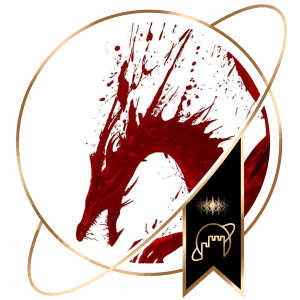
Collected: Dragon Age: Origins by Bioware
COLLECTION: Forced by circumstances to leave your old life behind, you join the ranks of the Grey Wardens, an ancient order sworn to protect the world against the murderous Darkspawn.







